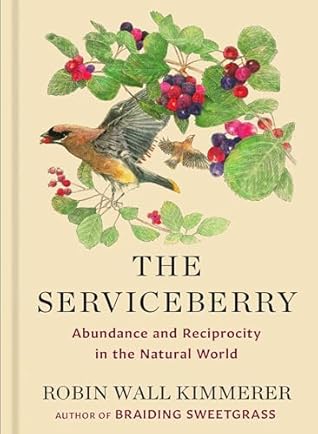More on this book
Community
Kindle Notes & Highlights
Read between
July 18 - August 1, 2025
When we speak of these not as things or natural resources or commodities, but as gifts, our whole relationship to the natural world changes.
Recognizing “enoughness” is a radical act in an economy that is always urging us to consume more.
Materials move through ecosystems in a circular economy and are constantly transformed. Abundance is created by recycling, by reciprocity.
These processes are the models for principles of a circular economy, in which there is no such thing as waste, only starting materials. Abundance is fueled by constantly circulating materials, not wasting them.
If the Sun is the source of flow in the economy of nature, what is the “Sun” of a human gift economy, the source that constantly replenishes the flow of gifts? Maybe it is love.
In a gift economy, wealth is understood as having enough to share, and the practice for dealing with abundance is to give it away. In fact, status is determined not by how much one accumulates, but by how much one gives away. The currency in a gift economy is relationship, which is expressed as gratitude, as interdependence and the ongoing cycles of reciprocity. A gift economy nurtures the community bonds that enhance mutual well-being; the economic unit is “we” rather than “I,” as all flourishing is mutual.
The prosperity of the community grows from the flow of relationships, not the accumulation of goods.
The guidelines of the Honorable Harvest are not usually written down, they are reinforced in small acts of daily life. But if I were to list them they would look something like this: Know the ways of the ones who take care of you, so that you can take care of them. Introduce yourself. Be accountable as the one who comes asking for a life. Ask permission before taking. Abide by the answer. Never take the first one. Never take the last. Take only what you need. Take only that which is given. Never take more than half. Leave some for others. Harvest in a way that minimizes harm. Use it
...more


